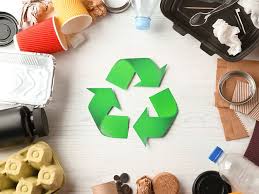
Plastic Recycling: A Global Perspective
Plastic waste is amongst the most pressing ecological troubles we experience these days. It really is calculated that about 8.3 billion metric a lot of plastic waste is produced because the 1950s, and simply about 9% of that has been recycled. The remainder has either been incinerated or is currently sitting in landfills or polluting our oceans. Nevertheless, using the advent of technologies and improvements in plastic recycling, we have the possibility to transform the way we deal with this squander.
Conventional Recycling
Standard plastic recycling requires melting on the plastic and reusing it to create new items. Nonetheless, this technique has restrictions. First, some kinds of plastics cannot be re-cycled applying this approach, including those used in packaging movies or throw away straws. Furthermore, every time plastic is reprocessed, it drops a number of its workable qualities, which means that it may only be recycled a restricted number of instances before it will become unusable. Even so, this process is still vitally important, mainly because it permits us to reuse a tremendous portion of our plastic waste and decreases the amount of spend in landfills or perhaps the ocean.
Substance Recycling
Chemical substance recycling is actually a more recent creativity in plastic recycling, and possesses the possibility to revolutionize the marketplace. This method requires breaking down the plastic into its molecular factors and reforming it into new plastic merchandise. This process has several positive aspects over classic recycling. For one, it may recycle a larger number of plastics, including those that traditional methods cannot. Furthermore, it can not degrade the plastic’s functional qualities, significance it might be re-cycled an unlimited number of times, tremendously minimizing plastic waste.
Bioplastics
One more revolutionary technology that is gaining popularity is the development of bioplastics. Bioplastics are plastics produced from alternative solutions, for example cornstarch or plant skin oils, which can be biodegradable. These plastics can be used various goods, which include food items packing and tools. Even though bioplastics are still in their infancy, they stand for a appealing strategy to the issue of plastic waste. However, it’s really worth noting that bioplastics also have their own pair of issues, such as the possible rivalry with food crops and the truth that they are not always truly bio-degradable.
Closed-Loop Recycling
Sealed-loop recycling is a method of recycling that creates a continuous cycle of creation and spend. This involves using reprocessed plastic to create new services, that happen to be then themselves recyclable. This method significantly decreases the amount of plastic waste generated, and contains an added benefit of lowering the necessity for producing new plastic. Companies that use shut-loop recycling, for example Adidas and Patagonia, have already been able to reduce their all round enviromentally friendly affect drastically.
The Importance of Client Actions
Finally, the achievements plastic recycling depends on not just technological innovation and development. Additionally, it relies upon customer behavior. Folks can create a important impact on minimizing plastic waste by making modest changes in their daily lives, such as making use of reusable shopping bags and h2o bottles, preventing throw away plastic products, and effectively recycling all plastic waste. Through making these tiny adjustments, we could all bring about the emerging trend in spend administration and plastic recycling.
Simply speaking:
Plastic waste is a significant environment problem which requires a multifaceted approach to deal with. By mixing classic recycling with modern technological innovation like compound recycling and bioplastics, we are able to help reduce the amount of plastic waste created and reduce our impact on the planet. In addition, closed-loop recycling and modifications in buyer behavior can help bring about the time and effort. With a concerted work from all stakeholders, we are able to revolutionize the way you take care of plastic waste and make up a a lot more sustainable future.